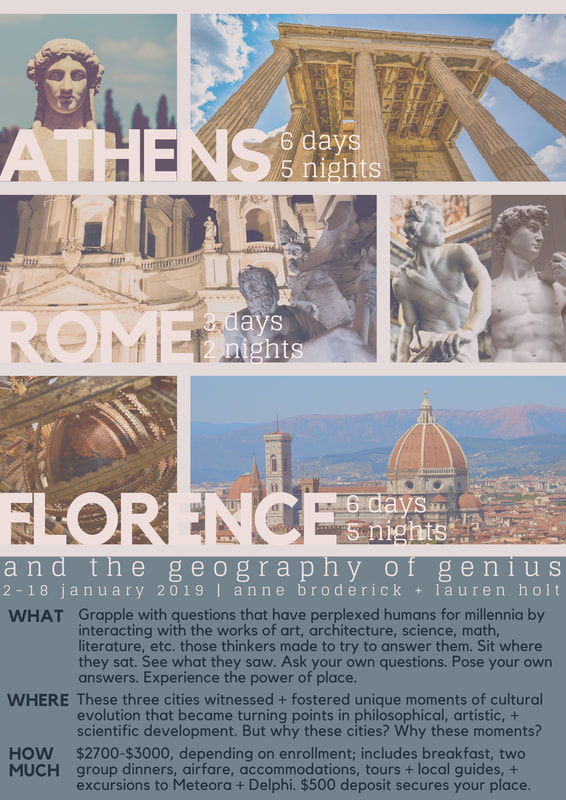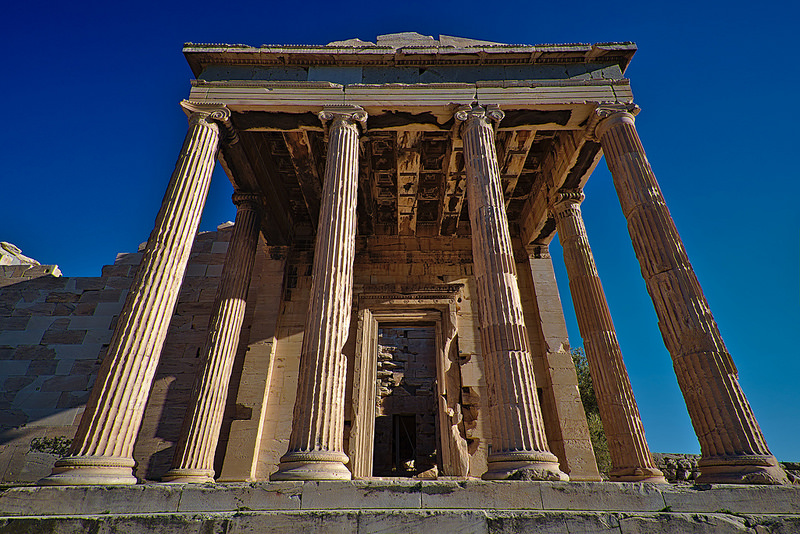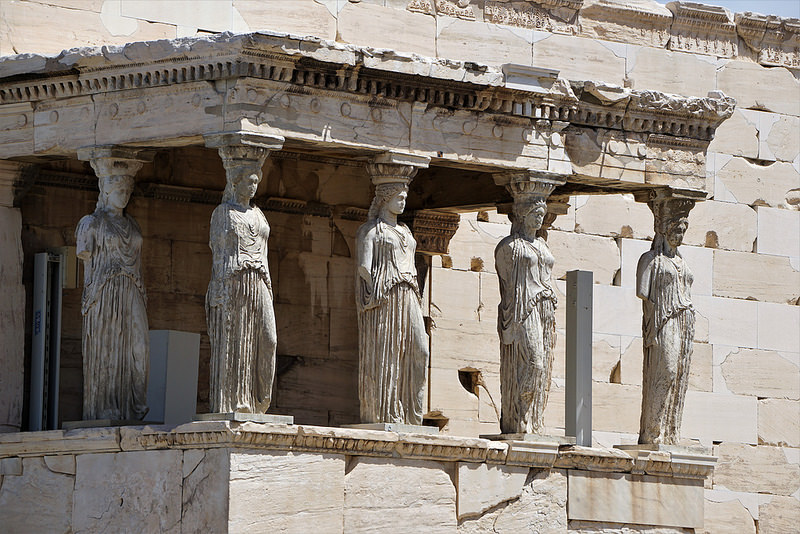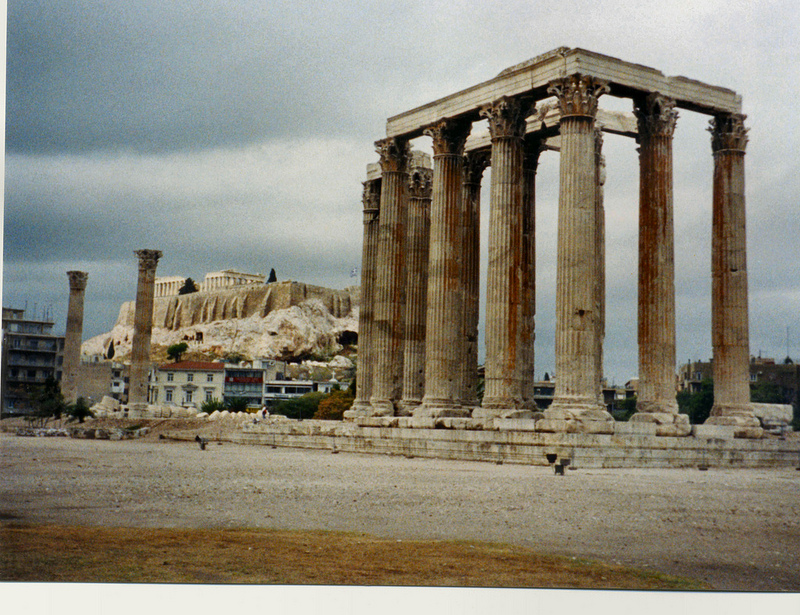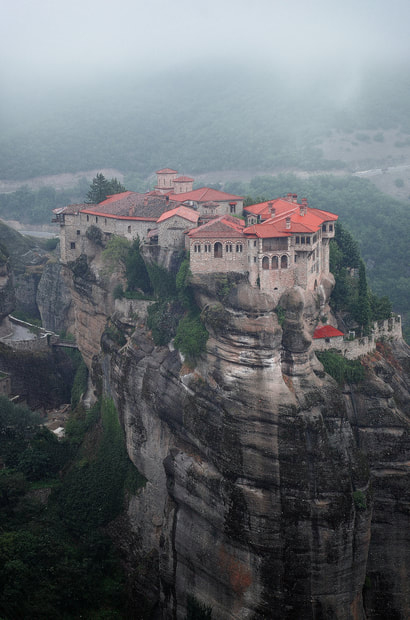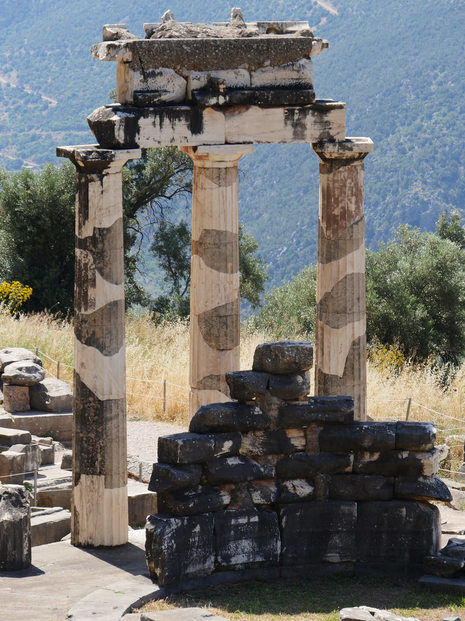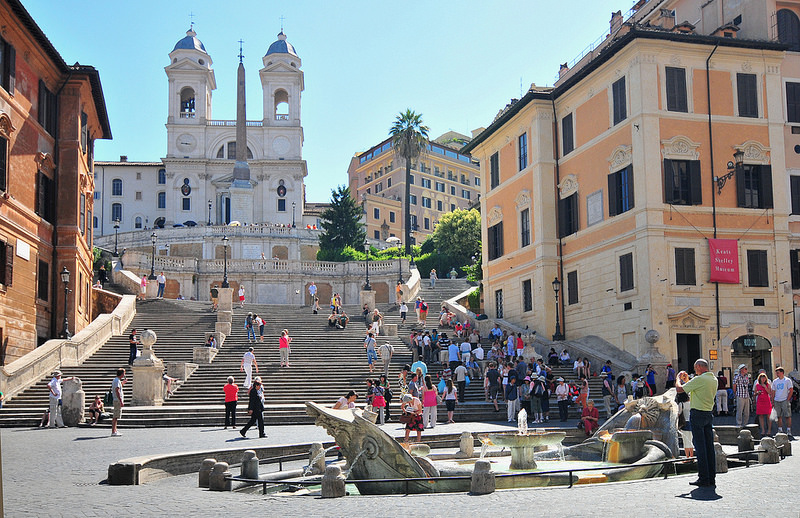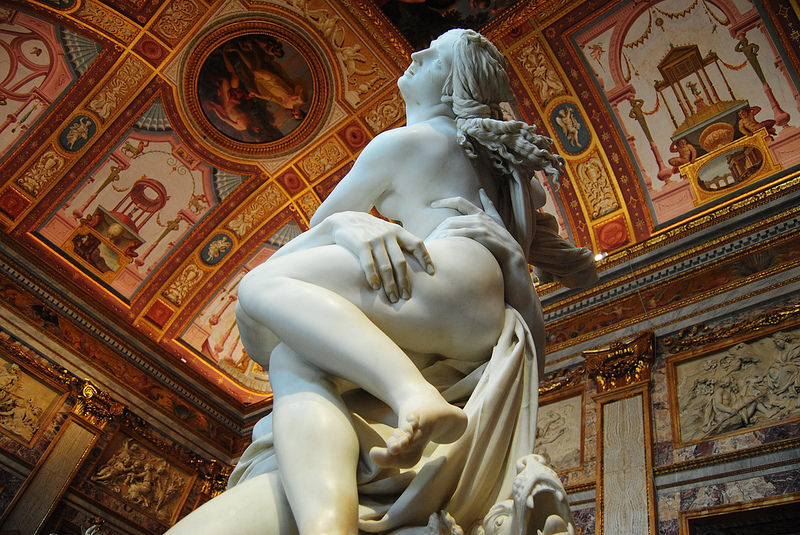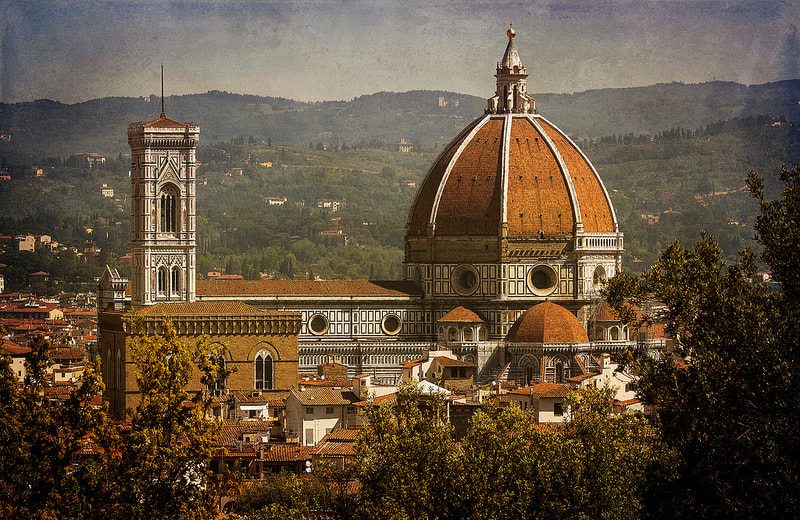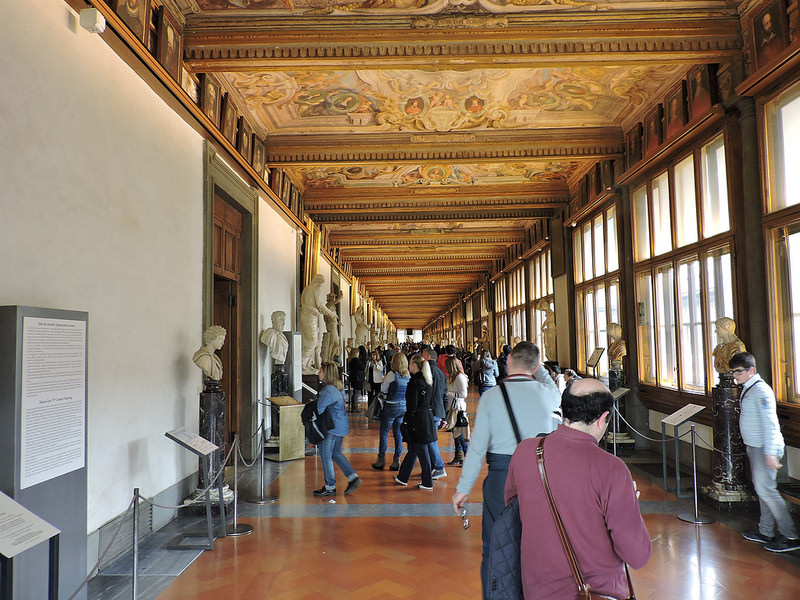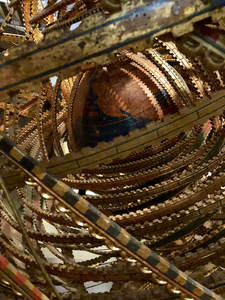What is virtue? What is morality? What does it mean to be human? Are all voices equal? Should they be? What do the golden mean and right triangles have to do with any of this? How do we as humans find our place or purpose in our culture, our era, our world, our universe? How do we - how can we - know? Why does any of this matter?
These questions captured the curiosity of artists, philosophers, mathematicians, scientists, and other thinkers and innovators in ancient Greece and in Renaissance Italy, and they explored these questions in a variety of ways - mathematically, rhetorically, philosophically, spiritually and via science, architecture, art, music, and literature - and created artifacts and structures that attempted to answer those questions. That’s right! Their buildings and sculptures, poems and paintings, proofs and theorems are answers to those questions! And their attempts to answer these questions ended up shifting the trajectory of western culture.
These questions captured the curiosity of artists, philosophers, mathematicians, scientists, and other thinkers and innovators in ancient Greece and in Renaissance Italy, and they explored these questions in a variety of ways - mathematically, rhetorically, philosophically, spiritually and via science, architecture, art, music, and literature - and created artifacts and structures that attempted to answer those questions. That’s right! Their buildings and sculptures, poems and paintings, proofs and theorems are answers to those questions! And their attempts to answer these questions ended up shifting the trajectory of western culture.
|
In fact, we are still grappling with these questions, and in addition to thinking about them, while we are traveling, we will add a few more of our own. Why did these cities in those moments foster this thinking? Why did these thinkers come up with those answers and artifacts? How can ruins, museums, landscapes, and monuments still tell the stories of their people and the influence of these people, places, and times on our own? How can they invite us to keep asking these questions? What answers will we find together? What will you create as you attempt to find and communicate your answers?
As you learn more about the intellectual histories of Greece and Italy, you will discover intersections between your own interests and those, for instance, of Socrates, Aristotle, and Plato, Pythagoras and Thucydides, the Medici and Machiavelli, Galileo, Michelangelo, Donatello, Leonardo, and Raphael (the thinkers and makers and doers, not the Heroes in the Half-Shell). You will take on leadership roles in our exploration of neighborhoods and cultural experiences, collaboratively leading walking tours and teaching one another about the characteristics of each place. And eventually, you will also develop your own responses to what we discover, create an artifact that illustrates, encapsulates, and/or synthesizes these discoveries, and share your artifact in the Excursion Showcase in mid-January. |
Areas of interest and further exploration might include painting, sculpture, architecture, mathematics, philosophy, nature, science, literature, music, photography, performance, (ancient) urban landscapes, history, politics, and others.
ITINERARY
*subject to change
2 January 2019 |
Meet at the airport for our evening flight. Take off around 8pm, and head toward Athens!
|
|
We’ll check into our hotel in Athens, which will be our home base for this part of the trip. From there, we will set off for a brief orientation tour to defeat jet lag. In the evening we’ll enjoy a welcome dinner together.
|
3 January 2019 |
4 January 2019 |
Our first full day in Athens will include a guided tour of the city's major and minor sites, including the Parthenon, the Acropolis, the Temple of Athena Nike, Omonoia Square, Syntagma Square, the 2004 Olympic site, the Plaka district, the Temple of Olympian Zeus, and Hadrian’s Arch.
We'll also undertake our first City Scavenger Hunt, teaming up to begin to use our familiarity with the city to connect some of the conceptual dots that will guide our inquiry on this Excursion. |
|
We'll head to Delphi from Athens for our first mini-excursion, where we'll explore the impressive ruins there, which the Greeks considered the center of the world. Within the depths of the Temple of Apollo, a priestess would inhale intoxicating vapors that used to rise from the earth and, thus inspired, deliver the prophecies of Apollo. Modern visitors might find more inspiration in the view from nearby Mount Parnassus, over 8000 feet high.
|
5 January 2019 |
6 January 2019 |
After overnighting in Delphi, we will travel to Meteora, site of an Eastern Orthodox monastery in Northern Greece. Built atop enormous column-shaped rock formations, the monasteries date from as early as the 14th century, with six of the original 24 still in use. Then, we'll head back to Athens for the night.
|
|
Back in Athens. we'll spend the day on our first two student-led walking tours. These tours will be in small groups on topics students explore and research in the weeks leading up to Excursion (during our planning meetings) and should provide students with an opportunity to identify and follow their individual interests while sharing them with their classmates.
|
7 January 2019 |
8 January 2019 |
We'll head to the airport to hop a quick flight to Rome, where we'll have our first sightseeing tour of this city that bridges the chronological scope of our Excursion. We'll check into our hotel, then explore the Coliseum area, the Spanish Steps, the Trevi Fountain, the Pantheon, and Piazza Navona as a way of finding our bearings in our next city. Once we've done that, we'll undertake our second City Scavenger Hunt.
|
|
Today we'll devote ourselves to understanding more deeply the Ancient and the Baroque in Rome, exploring the Ancient ruins as well as the Baroque sites on the way to the Borghese Gallery to surround ourselves with an unrivaled collection of Bernini sculpture and Baroque paintings.
|
9 January 2019 |
10 January 2019 |
We'll spend the first part of the day in Rome, either visiting Vatican City or exploring another site of the students' choosing before heading to Florence, where we'll check into our hotel and then head out for a quick orientation walk to get to know the last city of our trip. We'll see, among other things, the Palazzo Vecchio, the Piazza della Signoria, La Chiesa di Santa Croce, the Ponte Vecchio, the Duomo, the Baptistry and Gates of Paradise, and Giotto’s Bell Tower.
|
|
Today could be titled Ancient meets Renaissance meets Baroque; we'll explore Florence as a Renaissance powerhouse city, connecting the extremes of the chronological scope of our excursion. Students will lead a walking tour to/of the Garden of Archimedes, where we'll explore mathematics through three educational exhibits. "Beyond compasses: the geometry of curves" aims to reveal the mathematics concealed within various commonly used objects. "Pythagoras and his theorem" leads visitors through a series of puzzles to discover the various facets of what may be the best known mathematical theorem of all. "A bridge over the Mediterranean" is an historical exhibition centered around the life and times of Leonardo Fibonacci and illustrates the passage of mathematics from the Islamic world to Medieval Europe.
|
11 January 2019 |
12 January 2019Today we will focus on Medici-driven advancements in Renaissance Florence through two student-led walking tours. The first will be to/of the Uffizi Galleries, built by the Medici family and one of the most important collections in the world of art from the late medieval period through the Renaissance to Mannerism (Vasari, Botticelli, Caracci, Titian, Delacroix, Caravaggio, to name a few). The second will be to/of Palazzo Pitti and Boboli Gardens OR the Basilica di San Lorenzo, resting place of the Medici and featuring work by Michelangelo, Donatello, and Brunelleschi , depending on student interests.
|
13 January 2019If yesterday was about the Medici first, today is about artistic genius in Renaissance Florence less directly connected to that powerful family.
In the morning, students will lead a walking tour to/of Galleria dell’Accademia di Firenze, originally constructed to be a Michelangelo museum and home to the original David and Michelangelo’s unfinished Four Prisoners, it also includes pieces by Ucello, Botticelli, del Sarto, and others. And in the afternoon, we'll have another student-led walking tour, this time to/of Museo Nazionale di Bargelo, which houses some of Michelangelo’s earliest sculptures. |
14 January 2019 |
We'll devote our next to last day in Florence to the genius of natural philosophy by exploring the Galileo Museum and the Dante House Museum.
15 January 2019We'll spend the morning of our final full day in Florence on an architecturally focused City Scavenger Hunt before breaking out to complete any explorations that need to happen for student passion projects before ending the day in our end-of-trip group dinner reflecting on what we've seen, experienced, and learned.
|
16 + 17 January 2019 |
Travel day from Florence to ATL, then sleep in before meeting at school to finish working on passion project artifacts for the Excursion Showcase.
|
|
Prep for the Excursion Showcase in the morning, then show off all the thinking, questioning, observing, and doing that we accomplished on the trip in the Excursion Showcase in the afternoon.
|
18 January 2019 |
